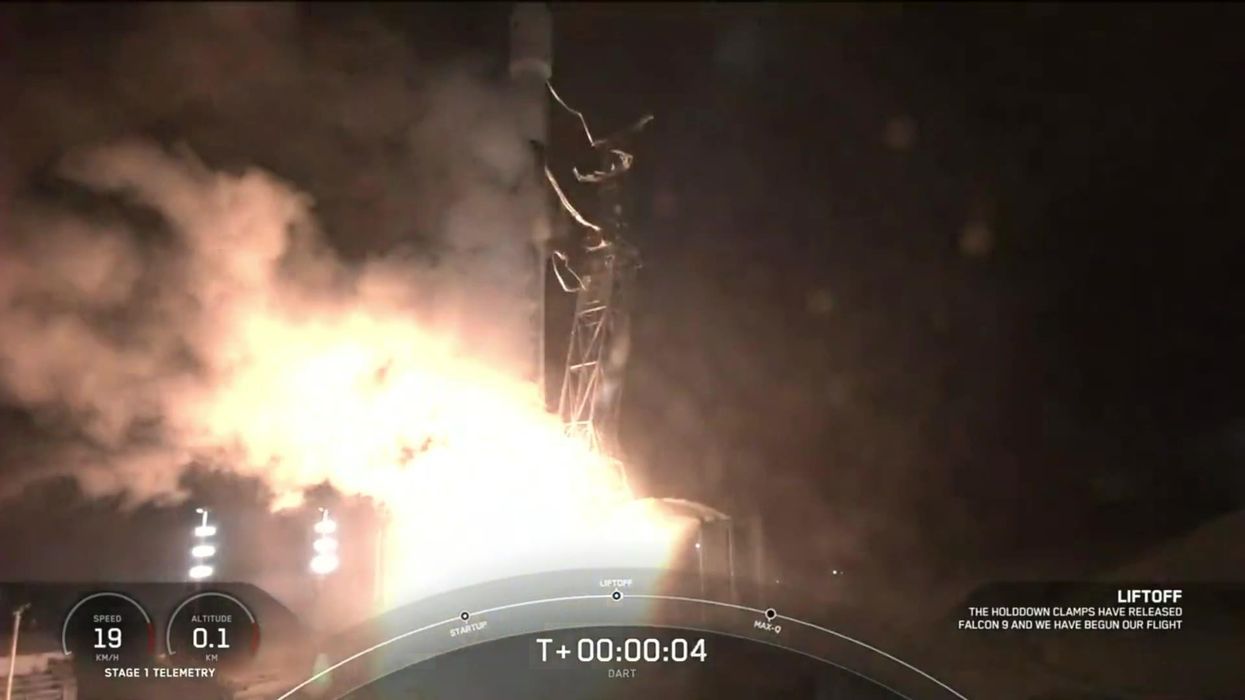Science & Tech
Ellie Abraham
Feb 07, 2022
Nasa launches rocket to deflect asteroid in first ‘planetary defence’ test
Independent TV
It’s the topic of many disaster movies, but scientists have revealed that we may be able to save Earth from a planet-destroying asteroid using nuclear technology.
Scientists from the University of California have been working on the way in which mankind may be able to save itself from extinction should an asteroid be heading this way.
In their analysis, they gave planet Earth six months notice of a 10km comet that was on a collision course with the planet and would destroy it entirely.
The experts concluded that the best hope for humanity to survive would be to point thousands of nuclear weapons at the comet and, essentially, hope for the best.
The study’s lead author, Philip Lubin, a professor of physics at UC Santa Barbara, told The Sun: “Our reason for writing the paper was to ask: ‘Could one prevent a catastrophe of this nature?’.
“It’s a serious attempt to look at whether humanity has reached a point where we could prevent what happened to the dinosaurs 65million years ago.”
Sign up to our new free Indy100 weekly newsletter
As part of the study published last week, Lubin and his colleague Alexander N. Cohen analysed what the impact of a collision of such magnitude would have on our planet today.
They predict that almost all life on Earth would be completely wiped out and the temperate of the atmosphere would rise to 300C.
NASA has also looked into this but given a notice period of several years. NASA’s preferred method would be to use a spacecraft to divert the object away from the path of Earth.
But, according to Lupin, this would not be possible given months of notice and he believes a nuclear strike would be the only viable option.
Lupin said: “What we point out is that we easily possess enough nuclear devices to take apart a large object like the one in Don’t Look Up.
“Our nuclear arsenals are designed to essentially threaten other nations – but those same devices could be used to protect us.”
Their study suggests it would take less than 10 per cent of the world’s current nuclear arsenal to “take apart” an asteroid.
The downside is that it would lead to radioactive debris coming back down to Earth – a risk that Lupin believes we’d have to take.
Lupin explained: “In the case of a 10km asteroid, you’re talking about an existential threat that’s going to kill billions of people.
“You can say ‘but, I’m really worried about the radiation’, but also just die.”
The Earth has been struck by a number of space rocks, with one in 2013 injuring 1,500 people in Russia.
According to Lupin, we need to have a plan in place.
He said: “It’s the nature of our natural world that we get hit by comets and asteroids because there are many around. There are big things out there that, if they did hit us, it would be catastrophic.
“On the other hand, there are a lot of smaller things out there, some of which are of similar size to the Chelyabinsk meteor, which are not existential threats, but they could potentially kill a lot of people.”
Have your say in our news democracy. Click the upvote icon at the top of the page to help raise this article through the indy100 rankings.
Top 100
The Conversation (0)














